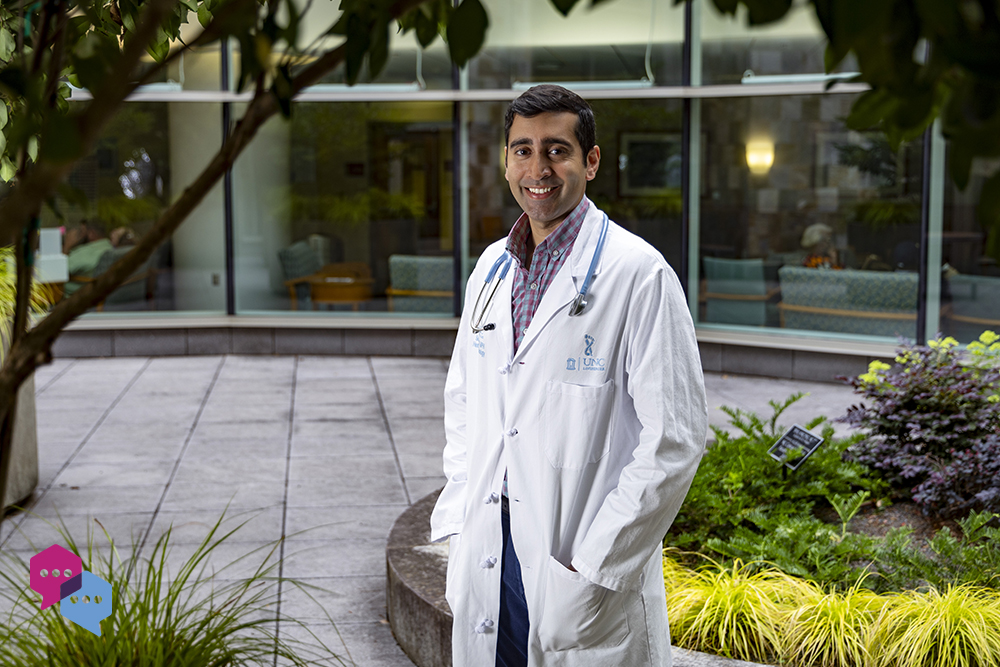Siddharth Sheth is an associate professor of medicine in the Division of Oncology and the head/neck cancer clinical research group leader within the UNC School of Medicine. He organizes and leads clinical trials to improve treatments for patients with head and neck cancer.
Q: How did you discover your specific field of study?
A: I like to think cancer care/research found me. My mother was diagnosed with lymphoma when I was in high school. That was my first personal encounter with cancer. Perhaps more formatively, I was drawn as a medical student to oncology — the field felt like the perfect marriage between conducting cutting-edge research and providing longitudinal care to patients. By my intern year of residency, I was hooked and soon discovered a passion for head and neck cancer.
Q: Academics are problem-solvers. Describe a research challenge you’ve faced and how you overcame it.
A: Every oncologist will discuss how important immunotherapy — a treatment that activates the immune system to help the body fight disease — is to our field, and most cancers have at least one FDA-approved indication to use it. While we are trying to incorporate immunotherapy in the curative setting for head and neck cancers, multiple clinical trials have failed to demonstrate its benefits. Therefore, major questions remain: Should we add immunotherapy before or after surgery? Should we combine with chemotherapy or radiation therapy? Is there another approach?
Some studies have shown that immunotherapy might be most effective prior to surgery or radiation therapy. This “neoadjuvant/induction” approach is now being studied extensively in clinical trials in all types of head and neck cancers, including many that we are leading here at Carolina. While time will tell, I am happy to put my name behind this approach and see if we can really make a difference.
And if it doesn’t work, we will keep trying until the problem is “solved.”
Q: Describe your research in five words.
A: Beating up cancer, not patients.
I am a huge believer in quality of life and living with dignity regardless of cancer. The goal of my clinical trial is to eradicate cancer while maximizing how patients feel.
Q: Who or what inspires you? Why?
A: At the risk of sounding like a cliché, everyone. My success as a provider and researcher depends on my entire team. Medicine is the ultimate team sport, and I am happy to be an active participant.
Q: If you could pursue any other career, what would it be and why?
A: Easy. I would be an anchor for Sports Center on ESPN. I love sports — especially UNC basketball! I love learning about athletes and their personal stories and motivations. Honestly, though, I would be terrible at reading off the teleprompter, so I will stick to my day job.


